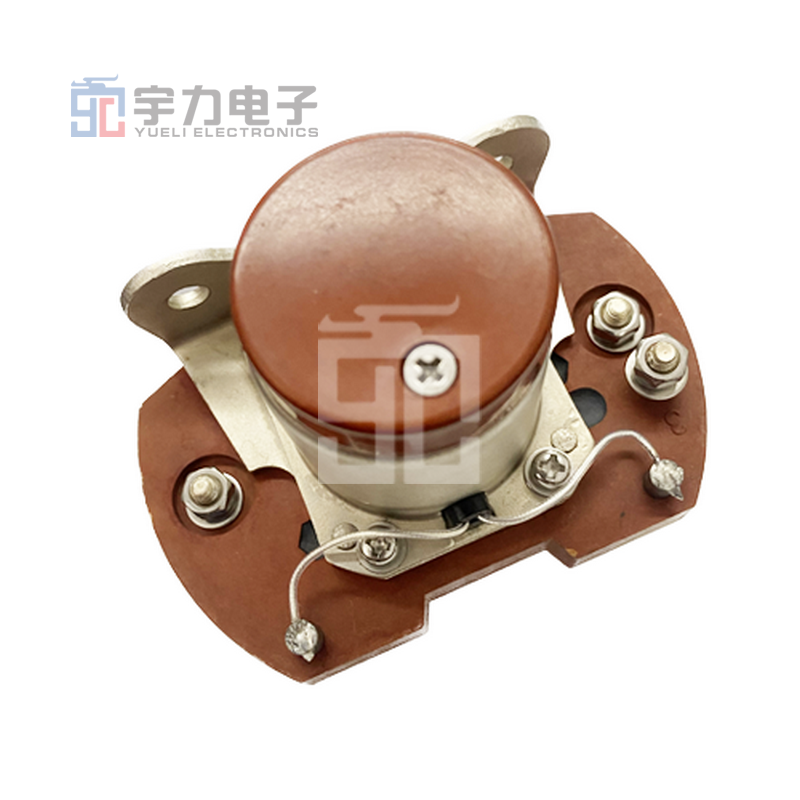Understanding DC Contactors: Essential Components in Electronic Circuits
2025-05-24

---
DC contactors are vital components in the realm of electronic devices, primarily used to switch electrical circuits on and off efficiently. They operate on direct current (DC) and are designed to handle high voltage and current levels, making them indispensable in numerous applications. Understanding their operation, characteristics, and potential uses can significantly enhance the performance and reliability of electronic systems.
A DC contactor essentially functions as an electromagnetic switch. When a control voltage is applied, the electromagnetic coil activates, pulling in a movable armature that closes the circuit. This operation allows for the seamless flow of electricity, powering various components within an electronic system. When the control voltage is removed, a spring mechanism returns the armature to its original position, thus interrupting the circuit. This on-off switching mechanism is fundamental in applications requiring frequent cycling of power.
One of the key advantages of DC contactors is their ability to handle substantial inrush currents, which is often observed during the startup of motors or other inductive loads. They are designed to withstand these surges without damage, ensuring longevity and reliability in various operational conditions. Moreover, they offer the ability to isolate different sections of an electronic system, enhancing safety and preventing potential damage during maintenance or repair.
DC contactors find extensive applications in industrial automation, renewable energy systems such as solar power installations, and automotive systems. In industrial environments, they are commonly used to control motors, lighting, and heating elements. In renewable energy, they manage the connection between solar panels and the grid, ensuring efficient energy distribution. In automotive electronics, they play a critical role in controlling power distribution to various components, enhancing vehicle functionality.
When selecting a DC contactor, it is essential to consider factors such as voltage rating, current capacity, and operating environment. Different applications may require specific characteristics, including rapid switching capabilities or resistance to extreme temperatures and vibrations. By understanding these parameters, professionals can choose the most suitable contactor for their needs, leading to improved system performance.
In conclusion, DC contactors are indispensable in the electronics industry, acting as reliable switches that manage electrical circuits with precision. Their various applications and robust design make them a cornerstone of modern electronic systems. By familiarizing oneself with the characteristics and functionalities of DC contactors, professionals can ensure optimal performance and longevity in their electronic designs.
DC contactors are vital components in the realm of electronic devices, primarily used to switch electrical circuits on and off efficiently. They operate on direct current (DC) and are designed to handle high voltage and current levels, making them indispensable in numerous applications. Understanding their operation, characteristics, and potential uses can significantly enhance the performance and reliability of electronic systems.
A DC contactor essentially functions as an electromagnetic switch. When a control voltage is applied, the electromagnetic coil activates, pulling in a movable armature that closes the circuit. This operation allows for the seamless flow of electricity, powering various components within an electronic system. When the control voltage is removed, a spring mechanism returns the armature to its original position, thus interrupting the circuit. This on-off switching mechanism is fundamental in applications requiring frequent cycling of power.
One of the key advantages of DC contactors is their ability to handle substantial inrush currents, which is often observed during the startup of motors or other inductive loads. They are designed to withstand these surges without damage, ensuring longevity and reliability in various operational conditions. Moreover, they offer the ability to isolate different sections of an electronic system, enhancing safety and preventing potential damage during maintenance or repair.
DC contactors find extensive applications in industrial automation, renewable energy systems such as solar power installations, and automotive systems. In industrial environments, they are commonly used to control motors, lighting, and heating elements. In renewable energy, they manage the connection between solar panels and the grid, ensuring efficient energy distribution. In automotive electronics, they play a critical role in controlling power distribution to various components, enhancing vehicle functionality.
When selecting a DC contactor, it is essential to consider factors such as voltage rating, current capacity, and operating environment. Different applications may require specific characteristics, including rapid switching capabilities or resistance to extreme temperatures and vibrations. By understanding these parameters, professionals can choose the most suitable contactor for their needs, leading to improved system performance.
In conclusion, DC contactors are indispensable in the electronics industry, acting as reliable switches that manage electrical circuits with precision. Their various applications and robust design make them a cornerstone of modern electronic systems. By familiarizing oneself with the characteristics and functionalities of DC contactors, professionals can ensure optimal performance and longevity in their electronic designs.


